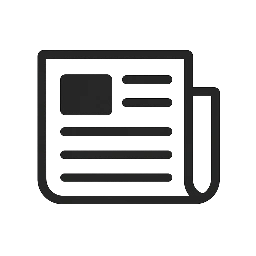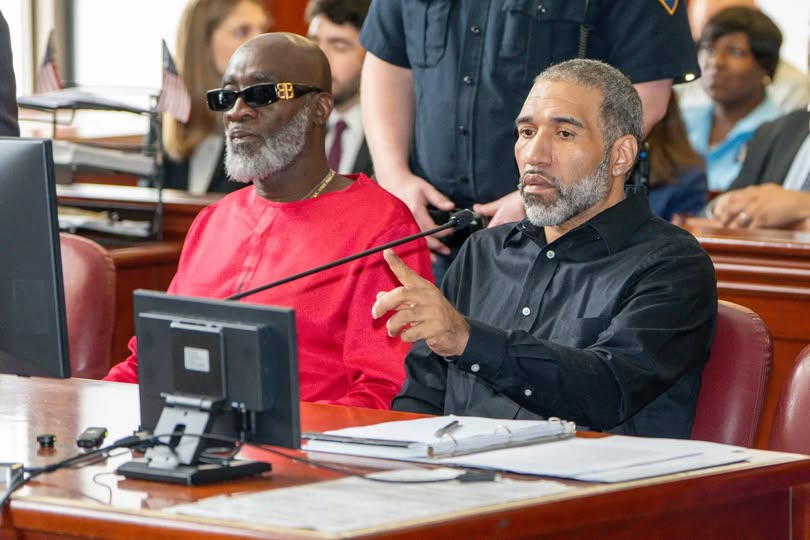In a dramatic and long-overdue turn of events, two men, Charles Collins and Brian Boles, have been cleared of all charges following wrongful convictions that kept them behind bars for over 30 years. The case, which had its roots in the 1994 murder of a New York woman, was marred by forced confessions, hidden evidence, and a flawed judicial process. It is a case that highlights the deep flaws in the justice system and raises questions about how many others may have been wrongfully convicted and remain behind bars for crimes they did not commit.
The Wrongful Conviction: The Early Years
In 1994, the murder of a woman named Linda Mae McKenzie shocked the community in New York. The 36-year-old mother of two was found lifeless in her home, and the case quickly became the focus of an intense investigation by the local police. In the heat of this investigation, Brian Boles, who was just 17 years old at the time, was brought in for questioning. Brian had no criminal record, and there was no physical evidence linking him to the crime, but under immense pressure, he was coerced into making a confession that would change the course of his life.
Police used deceitful tactics to force Brian into a confession. They lied to him about evidence that didn’t exist, threatened him with severe consequences, and kept him awake for hours on end, all without the presence of a lawyer or his parents. They repeatedly told him that his only way out was to confess, even though he was innocent. Tragically, Brian, who had no legal knowledge and was overwhelmed by fear, falsely confessed to the crime.
Brian’s co-defendant, Charles Collins, was also ensnared in the case. Like Brian, Charles was subjected to the same manipulative tactics, and under duress, he too was coerced into a false confession. Both men were convicted of the crime and sentenced to long prison terms. Brian, who was just a teenager, was sentenced to 30 years in prison, while Charles received a 23-year sentence. Their lives were irreversibly changed by a miscarriage of justice that was the result of forced confessions, the absence of real evidence, and a broken legal system.
The Fight for Justice: Decades of Struggle
The years that followed were fraught with hardship for both men. Brian spent decades in prison, fighting to prove his innocence. During his time in prison, he focused on self-improvement and education. He graduated from Bard College, an accomplishment that would later become part of his advocacy for justice reform. Although Brian fought tirelessly to have his case reopened, the road to justice seemed insurmountable. However, in the face of overwhelming odds, both Brian and Charles remained hopeful that one day they would see their names cleared.
Meanwhile, Charles also worked tirelessly to seek justice, petitioning for DNA testing and filing appeals. Despite their efforts, it was not until 2025 that they were finally given the chance they needed to prove their innocence.
The Breakthrough: New DNA Evidence
In 2025, an unexpected breakthrough came in the form of new DNA testing. Advances in forensic technology allowed investigators to retest the evidence from the original case, including DNA recovered from under the victim’s fingernails. The results were nothing short of explosive. The DNA did not belong to Brian or Charles; instead, it pointed to someone else entirely.
Moreover, further investigation revealed reports that had been withheld during the original trial, including documentation proving that the victim had been alive after the time that Brian had claimed to have committed the murder. These reports, which had been intentionally concealed by the prosecution, further undermined the case against Brian and Charles. The suppression of such vital evidence during the trial was a clear violation of their rights and was a crucial factor in their wrongful convictions.
With this new evidence in hand, the case against Brian and Charles began to unravel. The evidence pointed to a gross miscarriage of justice that had been perpetuated for over three decades. Both men were finally given the opportunity to present the truth, and the judge overseeing the case ruled in their favor, dismissing all charges against them.
Exoneration and Aftermath: A New Chapter
On the day of their exoneration, the courtroom was filled with emotion as Brian and Charles, now both in their 40s and 50s, were declared innocent. The relief was palpable, but the years lost to wrongful incarceration weighed heavily on them both. They were free, but the damage done to their lives could never be fully undone.
Brian, who had spent his teenage years and most of his adult life behind bars, reflected on his years in prison. He expressed his gratitude for the support he had received from family, friends, and legal advocates who had never given up on him. In an emotional statement following the ruling, Brian vowed to use his newfound freedom to help others who had been wrongfully convicted, just as he had been.
Charles, too, expressed his relief, though he acknowledged the deep scars left by the years he had spent in prison. “I’ve lost so much,” he said. “But I’m grateful for the chance to rebuild my life, and I won’t stop fighting for justice for those who are still trapped in the system.”
The Broader Implications: A Wake-Up Call for the Justice System
The case of Brian Boles and Charles Collins is not just a story of two men’s fight for justice—it is a wake-up call for the entire justice system. The wrongful convictions in this case are a stark reminder of the dangers of coerced confessions and the flaws that exist within our legal framework.
The use of forced confessions, particularly in cases involving vulnerable individuals like minors, is a serious issue that needs to be addressed. Brian was just 17 when he was coerced into confessing, and he spent decades in prison based on a lie. The case also highlights the importance of transparency and the need for the prosecution to share all relevant evidence, including exculpatory evidence that can prove a defendant’s innocence.
The exoneration of Brian and Charles calls for greater attention to wrongful convictions, particularly those involving forced confessions and the suppression of evidence. It also serves as a reminder of the importance of continued reforms in the criminal justice system to prevent such miscarriages of justice from occurring in the future.
A Future Dedicated to Justice and Advocacy
Brian and Charles’ story is not just about their exoneration—it is about their commitment to justice and advocacy. Both men are determined to use their experiences to help those who have been wrongfully convicted and to raise awareness about the flaws in the criminal justice system. Brian, in particular, has already begun his work as an advocate for criminal justice reform, aiming to ensure that no one else has to endure the same hardships he and Charles faced.
While their exoneration marks the end of a long and painful chapter, it also marks the beginning of a new chapter—one where Brian and Charles will continue to fight for justice and help others find their own paths to freedom.
As we reflect on their story, we are reminded of the resilience of the human spirit and the importance of hope, perseverance, and the pursuit of justice, no matter how long it takes.


Leave a Reply